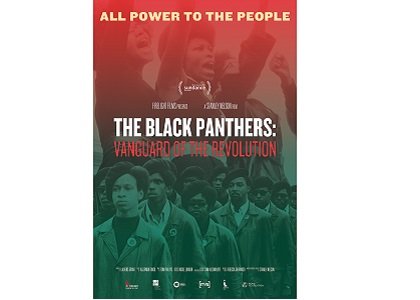(NNPA) — The Black Panthers: Vanguard of the Revolution, the first feature-length film to focus on the origin and downfall of the Black Panther Party for Self-Defense is making waves in the film community. It’s been a breakout entry at the Sundance Film Festival, and has already won an award at the Pan African Film & Arts Festival in Los Angeles.
But for acclaimed director Stanley Nelson, the real triumph will be in getting the film to the masses.
“We’re going to film festivals…and getting great, great, great responses. But one of the things that we feel is that film festivals reach a certain segment of the population,” says Nelson, the filmmaker behind Freedom Riders, The Murder of Emmett Till, and other notable documentaries on the African American experience.
“Another segment of the population doesn’t go to film festivals, and those people are the people we want to reach in the theatrical release.”
Thanks to financial backing from PBS, the film will have a theatrical release in more than a dozen cities across the country this September. Still, the documentary team hopes to raise additional funds through donations website, Kickstarter (kck.st/1IjSI1V). These funds will support the film’s expansion via broad advertising, and public appearances and events with the filmmakers and Black Panther Party leaders.
“Our hope is that if we raise a bit more money…as we go through these [13] cities, if we’re successful and recoup our investment, then we’ll just put that money into going to more cities,” Nelson explains. “Our goal is not to make a profit, our goal is to get people out and have as many people see it as we possibly can.”
Other documentaries and movies have either focused on Black Panther figures such as Kwame Toure and Assata Shakur, or have explored the Panthers as one part of a larger picture. The Black Panther Party focuses solely on the organization in its entirety and weaves together a variety of voices, from Party martyrs to those tasked with their destruction. The film also boasts original content from notables such as Kathleen Cleaver, Elaine Brown, Henry Douglas, Elbert “Big Man” Howard, and more.
“One of the things we tried to do in this film is make sure it’s exciting and we tell a new story to everybody,” both the well-informed and the newcomers, Nelson says. “Some of the great things that have happened in the screenings is, people who were Panthers themselves come up to us and say, ‘You know, I was in the middle of it. I didn’t know half the stuff that was in the film.’ There’s a lot of new information.”
Donations through the Kickstarter come with interesting perks, ranging from social media shout-outs for donations as small as $5, to T-shirts, tickets to screenings, autographed photos, and more. For those who cannot donate, Nelson recommends sharing the Kickstarter link with others (kickstarter.com/projects/blackpanthers/the-black-panthers-theatrical-release).
New York, Los Angeles, Oakland, San Francisco, Berkeley, Chicago, Boston, Portland, Philadelphia, Baltimore, Atlanta, Seattle and Washington, D.C. are the 13 initial cities slated for wide release this fall. The film will also be screened at several film festivals around the country throughout the summer. More information on these screenings can be found on www.TheBlackPanthers.com.
Most schools teach little to nothing about the political and social movement launched by the Black Panthers. And in the midst of today’s movements against injustice and discrimination – from police violence to reproductive rights – the film is well timed.
“We want a lot of people to see the film, especially young people. It’s not only a film about the Black Panthers, but the Black Panthers represent young people who really became involved in changing the world,” Nelson says. “Right or wrong, they did feel like they were changing the world. And we want young people to get that message.”
